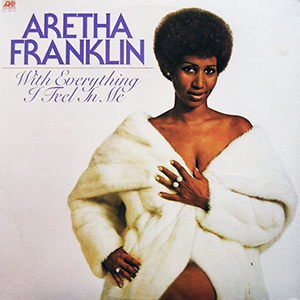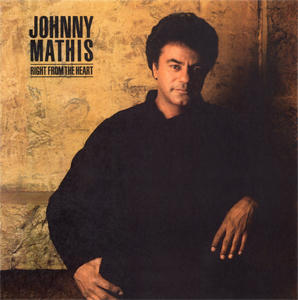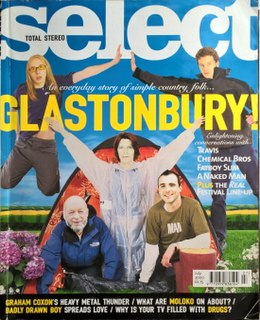
Music of My Mind is the fourteenth studio album by American soul musician Stevie Wonder. It was released on March 3, 1972, by Tamla Records. Wonder used synthesizers for many musical parts on this album. It was a modest commercial success, but critics found the record representative of Wonder's artistic growth, and many contemporary critics consider it the first album of his classic period.

Bush Doctor is the third studio album by Jamaican singer Peter Tosh. It was released in 1978.

Sally Can't Dance is the fourth solo studio album by American musician Lou Reed, released in August 1974 by RCA Records. Steve Katz and Reed produced the album. It remains Reed's highest-charting album in the United States, having peaked at #10 during a 14-week stay on the Billboard 200 album chart in October 1974. It is also the first solo Lou Reed album not to feature any songs originally recorded by Reed's earlier band, the Velvet Underground, as well as the first of Reed's solo studio albums to be recorded in the United States.

No Cities Left is the second album by The Dears, released in 2003 on MapleMusic Recordings. It was the band's second full-length album of new material and was so successful that it was re-released in Canada in 2005.

New Sensations is the thirteenth solo studio album by American musician Lou Reed, released in April 1984 by RCA Records. John Jansen and Reed produced the album. New Sensations peaked at No. 56 on the Billboard 200 and at No. 92 on the UK Albums Chart. This marked the first time that Reed charted within the US Top 100 since 1978's Street Hassle, and the first time that Reed had charted in the UK altogether since 1976's Coney Island Baby. Three singles were released from the album: "I Love You, Suzanne", "My Red Joystick" and "High in the City", with "I Love You, Suzanne" being the only single to chart, peaking at No. 78 on the UK Singles Chart. "I Love You, Suzanne" did, however, receive light rotation on MTV.

Mistrial is the fourteenth solo studio album by American musician Lou Reed, released in June 1986 by RCA Records two years after his previous album, New Sensations (1984). Fernando Saunders and Reed produced the album.

Rock and Roll Heart is the seventh solo studio album by Lou Reed, released in 1976. It was his first album for Arista Records after record mogul Clive Davis reportedly rescued him from bankruptcy. "A Sheltered Life" dates back to 1967, when the Velvet Underground recorded a demo of it. The Velvet Underground also performed "Follow the Leader", and a live recording of it was released on The Quine Tapes.

With Everything I Feel in Me is the twenty-first studio album by American singer Aretha Franklin, Released on November 25, 1974 by Atlantic Records. This recording did not do as well commercially as previous Franklin albums. The LP reached #57 on Billboard's Top Album charts and peaked at #6 on the R&B album charts. None of its singles reached the Top 40 on the Billboard Hot 100. The lead single, "Without Love", written by Aretha's sister Carolyn Franklin and former Motown producer Ivy Jo Hunter, charted at #45 Pop, but fared far better on the R&B charts reaching #6. The title cut also charted at #20 on the R&B charts in early 1975. The album was released on compact disc in Europe in 2008.

Live: Take No Prisoners is a 1978 live album by Lou Reed, recorded during May 1978 at The Bottom Line in New York.

Baby It's Me is a 1977 album released by American singer Diana Ross on the Motown label that peaked at #18 on the Billboard Top 200 and #7 on the R&B album chart. The album was produced by producer Richard Perry. The LP yielded one Top 40 hit, "Gettin' Ready for Love", reaching number 27 on the US Billboard Hot 100. Other charting singles released from the album include "You Got It" and "Your Love is so Good for Me," the latter receiving a Grammy nomination.

Nils is the fifth solo album from Nils Lofgren.

Luxury You Can Afford is the seventh studio album by Joe Cocker, released in 1978 on Asylum Records, his only release for that label.

If That's What It Takes is the debut studio album by American singer-songwriter Michael McDonald. The album was released in August 1982.

Born to Love is a 1983 studio album of duets by Peabo Bryson and Roberta Flack, released on Bryson's label Capitol Records. The album yielded the million-selling hit single "Tonight, I Celebrate My Love", written by Gerry Goffin and Michael Masser.

Without Warning is the second and final album by the Everyman Band featuring guitarist David Torn, saxophonist Marty Fogel, bassist Bruce Yaw and drummer Michael Suchorsky recorded in 1984 and released on the ECM label. With the exception of Torn, the other three musicians played in various Lou Reed backing bands from the mid-70s until 1980.
Everyman Band was an American jazz fusion group active in the early 1980s and featuring Marty Fogel on saxophones, Bruce Yaw on bass, Michael Suchorsky on drums and David Torn on guitar. The band's origins lay in Lou Reed's backing band in the late 1970s with various members appearing on Coney Island Baby (1975), Rock and Roll Heart (1976), Street Hassle (1978), and The Bells (1979) and the live album Live: Take No Prisoners (1978). Michael Suchorsky continued playing with Reed until 1980's Growing Up in Public album and tour.

Right from the Heart is an album by American pop singer Johnny Mathis that was released on March 18, 1985, by Columbia Records and was his first album without songs that were previously recorded by other artists. The title track is one of the album's four ballads that, along with four of the remaining six up-tempo tracks, delve into the subject of relationships, but it's the synth-driven "Step by Step" and the anthemic "Hold On" on which Mathis takes a break from the usual focus on love songs. The former offers the hope that can be found in change that comes gradually until "I can see the way free from yesterday to a new beginning." The latter stresses the importance of being oneself: "Life is a party. Why don't you come the way you are?"

Bad for Me is the fourth studio album by American jazz singer Dee Dee Bridgewater. It was released in 1979 through Elektra Records. The album peaked at number 182 on the US Billboard 200 albums chart and at number 57 on the Top R&B/Hip-Hop Albums chart. Its only single, a self-titled track "Bad for Me", also made it to the charts, reaching number 37 on the Hot R&B/Hip-Hop Songs chart.



























